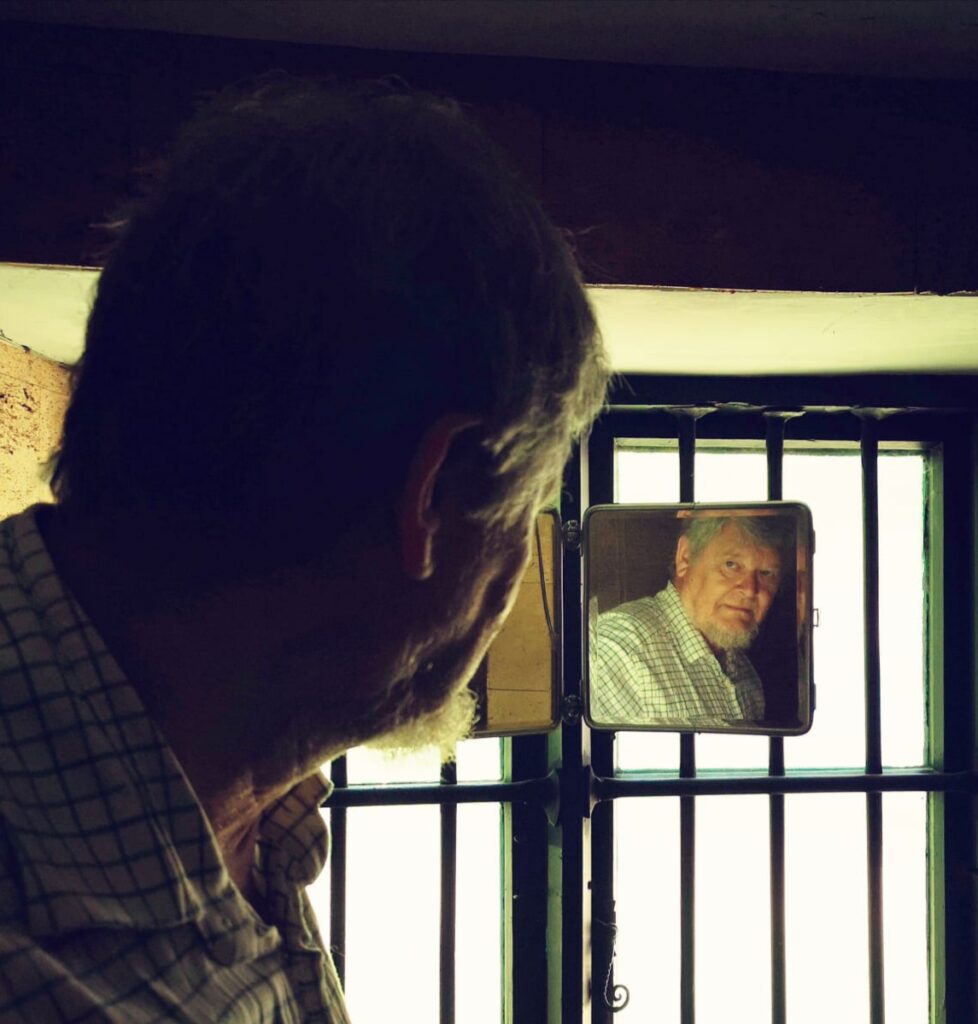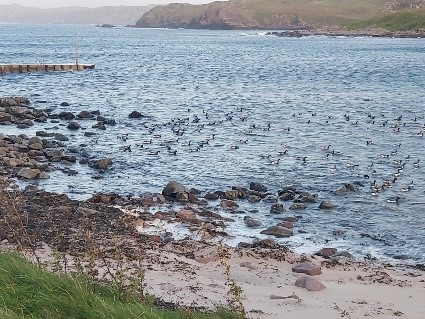16 June 2022
No Man Is An Island
The Inner Hebrides
by J.R. Thomas

Firstly, in the spirit of the age, let us make clear that when we say that men are not islands, we naturally include women, persons of dual gender, of none, and of variable and fluctuating choices. But what we are setting out to discuss is not whether persons of any gender might be islands, or as Mr Donne so learnedly suggested, could not be islands, but as to whether living on an island might lead to health wealth and happiness. (That quote we cannot exactly source but I suspect it came from an episode of Inspector Morse written by the learned Colin Dexter, adopting Elbert Hubbard, an American libertarian socialist chiefly famous now, and probably then, for going down on the Lusitania in 1915. Don’t say you don’t find unexpected threads in this column.)
But what brought about these random musings is the film “Prince of Muck”, which we touched on here two weeks ago, but feel drawn to return to. Refreshing your memory, Cindy Janson’s wonderfully filmed and directed documentary is available on BBC iPlayer, and apparently on Amazon Prime for those trying to avoid the sanctimony of the Beeb.
Its “star” is Laurence MacEwen, the owner of the tiny island of Muck in the Inner Hebrides. Muck is south-west of Eigg, south of Rum and Canna, and if you are intending to go there, the Small Isles Ferry from Mallaig will take you to each of these islands with funny names, calling at Muck last; or sometimes first, depending on itineraries and weather forecasts. No cars are allowed on the Small Isles, other than those owned by the inhabitants; but why would you want one, when walking on the edge of the world is such a pleasure? Muck is 1,500 acres of exposed land, mostly low lying, grazed by sheep and cattle, swept by Atlantic gales but also often bathed in sunshine – the nearby island of Tiree is noted for having more hours of sunshine than any other part of the British Isles.
Rum, its bigger neighbour, has been owned since 1957 by the Nature Conservancy Council for Scotland (or as it likes to be known, NatureScot); the Scottish Government in other words. It is almost twenty times the size of Muck, but with the same population, about 35. Most of them work for NatureScot who run the island as a nature reserve, with especial emphasis on deer and predator birds. Rum is also a minor tourist destination, focussed on the massive and rather wonderful Kinloch Castle, complete with the contents left by the last private owners – including their boots in the bedrooms. Alas NatureScot has not maintained the house which is now in a dire state, and so far no solution to repairing it, likely to cost around £20m, has been found. The third in our quartet of Small Isles is Eigg, formerly privately owned, latterly by the highly controversial conservationist Keith Schellenburg, who became so unpopular that he found it impossible to live there, and so created one of the first community buyouts in Scotland in 1997. It has a population of about 100 who are attempting, with much external support, to build a sustainable community, but with considerable strife on the island, and about it. And the fourth of our islands is Canna, formerly owned by John Lorne Campbell, distinguished and wealthy Gaelic historian, who on his death in 1981 left the island to the National Trust for Scotland. It has to be said that the NTS’s administration has not been a success. The effort of trying to meld the conflicting pressures of tourism, conservation, and a long term future for the inhabitants – now down to 16 – having not worked out, the Trust has made over the running of the island to the inhabitants in the hope they can build the population up – especially with young people.
All of which makes a wonderful advertisement for the private ownership of Scottish landed estates, as seen on Muck. But that does not take account of the very unusual personality of Laurence MacEwen. The MacEwen’s came from a fairly standard lairdly background; they made their money elsewhere – though in Scotland, many Scottish estates in the nineteenth and twentieth centuries being bought by English in-comers, and in the twenty-first century by European and Arab arrivistes. The MacEwens bought Muck in 1896; Laurence was the fourth generation owner and was educated at Gordonstoun. But he was not intended to own this windy paradise; he had an elder brother to whom it was left on their father’s death in 1964, but who on reflection decided it should be sold. Laurence fought against that, and eventually his brother transferred it to him and went to live elsewhere.

Muck was always noted as being a bit different to most Scottish islands and estates; the MacEwens were not grand. They ran the place in a hands-on way, farming most of the land, building an hotel, building wind turbines to make the island more or less self sufficient in electricity, not very interested in any sporting potential, and doing all they could to encourage younger families to come and live on Muck and start businesses to make use of the island’s natural advantages. Of which, it has to be said, there are not many; wool products (clothes and blankets) and tourism being basically it. But it is surprising what can be generated from that, especially with the tourism being aimed at those who will stay in the hotel and in bed and breakfasts places – not camping. It has worked. Though the population is still small, it has grown from the around 11 living there in the 1940’s to about 35 now, and by Highlands and Islands standards it is young, keeping the school open and meaning there are some energetic workers.
But Laurence brought something else to the island. He had a spirit of stubbornness, which made the whole thing possible; a humility which made people, who after all are his tenants, feel he was one of them, that they were all in it together, and a love of hard manual work. In spite of the wind turbines he cared not for technology, living and farming in an old fashioned way, stroking his cows, milking by hand, working in the fields with old tractors and old fashioned implements and in traditional ways that respected the soil and did not damage it.
Cindy Jansen’s film does not show an idyllic community; no Californian hippie collective this, or Indian ashram. The MacEwens argue and grumble quite a lot, and curse a bit, but they are also happy; their aspirations are low but their life satisfaction is high, and if they fight occasionally it is over differing views as to how to keep things much the same. Laurence MacEwen died aged 81 just after the film was first shown, but his son and grandchildren live on Muck and farm it, intending to continue as part of a living supportive sustainable community.
Maybe this is what we all need to aim at, not complete renunciation of things material, but a life which is more about happiness than objects, which has time to reflect and dream. Less electronics, more listening to the rain on the roof; less shopping, more gardening. More island happiness.

